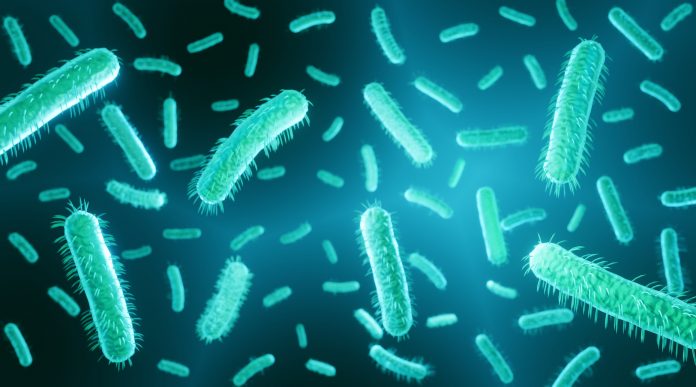
Researchers at the Columbia University Irving Medical Center have engineered probiotic bacteria to act as personalized cancer vaccines that can activate the immune system to target and destroy cancer cells. The new approach, detailed Wednesday in a paper published in Nature, harnesses the natural tumor-targeting properties of bacteria, which could eventually yield a new class of vaccines that can be precisely engineered to treat an individual patient’s tumors and metastases.
In their study, the Columbia team detailed the effectiveness of the bacterial vaccine in mouse models of advanced colorectal cancer and melanoma. The vaccine activate immune response to suppress the growth of primary and metastatic tumors, and in many cases eliminated the tumors, while also leaving alone health cells in the body.
“The important advantage of our system is its unique ability to coordinately restructure and activate all arms of the immune system to induce a productive antitumor immune response,” said Andrew Redenti, an MD/PhD student at Columbia University’s Vagelos College of Physicians and Surgeons, who helped lead the study. “We believe this is why the system works so well in advanced solid tumor models which have been particularly difficult to treat with other immunotherapies.”
The bacterial platform developed allows for providing a vaccine that is precisely targeted for specific tumors.
“Every cancer is unique—tumor cells harbor distinct genetic mutations that distinguish them from normal healthy cells,” said co-senior author Nicholas Arpaia, PhD, associate professor of microbiology and immunology. “By programming bacteria to direct the immune system to target these cancer-specific mutations, we can engineer more effective therapies that stimulate a patient’s own immune system to detect and kill their cancer cells.”
The use of bacteria to treat some forms of cancer is not new, dating back to the 1800s when studies showed tumor regression in some patients injected with bacteria. Today, bacteria are sometimes used for the treatment of early-stage bladder cancer and it has been demonstrated that some bacteria can naturally migrate to tumors and colonize them to provoke immune response within the tumor microenvironment.
But simply using bacteria does not usually allow for precise immune control against cancer, Arpaia noted. “These qualities alone don’t typically give bacteria enough power to stimulate immune responses capable of destroying a tumor, but they’re a good starting point for building a new domain of cancer therapeutics.”
For their work, the Columbia team used a probiotic strain of E. coli as the basis for the vaccine, then made genetic modifications to the bacteria to precisely control how the bacteria interacted with the immune system to induce tumor destruction. The engineered bacteria encoded neoantigens specific to the cancer being treated. Delivered by the bacteria, the neoantigens trained the immune system to identify and attack cancer cells while leaving healthy cells unharmed.
Further, the engineered bacteria were designed to counteract immunosuppressive mechanisms that tumors often deploy to evade immune attacks.
In their mouse models, the bacterial vaccine demonstrated it recruited and activated dendritic cells, and primed and activated both CD4+ and CD8+ T cells. The vaccine also broadens activation of natural killer cells and reduces populations of immunosuppressive myeloid cells, regulatory T cells, and B cells within tumors.
The vaccine also showed promise even before tumors developed and helped prevent the regrowth of the tumors once the mice had been cured, an important finding that indicates the vaccine may also prevent cancer recurrence in patients in remission.
In order to create microbial vaccines for humans, patients would first have their tumor sequenced in order to identify and target its unique neoantigens. Using this information, the bacteria would be engineered to produce these neoantigens and they would then be infused into the patient to target and colonize the tumors.
“Because our platform allows us to deliver so many different neoantigens, it theoretically becomes difficult for tumor cells to lose all those targets at once and avoid the immune response,” Arpaia said.
The researchers believe their bacterial vaccine approach can succeed where previous cancer vaccines have not, because their probiotic vaccine showed it can effectively modulate the immunosuppressive tumor environment. “Bacteria allow delivery of a higher concentration of drugs than can be tolerated when these compounds are delivered systemically throughout the entire body,” Arpaia said.
The Columbia team is now focused on integrating additional safety optimizations through further genetic programming of the bacteria with an eye toward launching in-human clinical studies.









![Best Weight Loss Supplements [2022-23] New Reports!](https://technologytangle.com/wp-content/uploads/2022/12/p1-1170962-1670840878.png)




